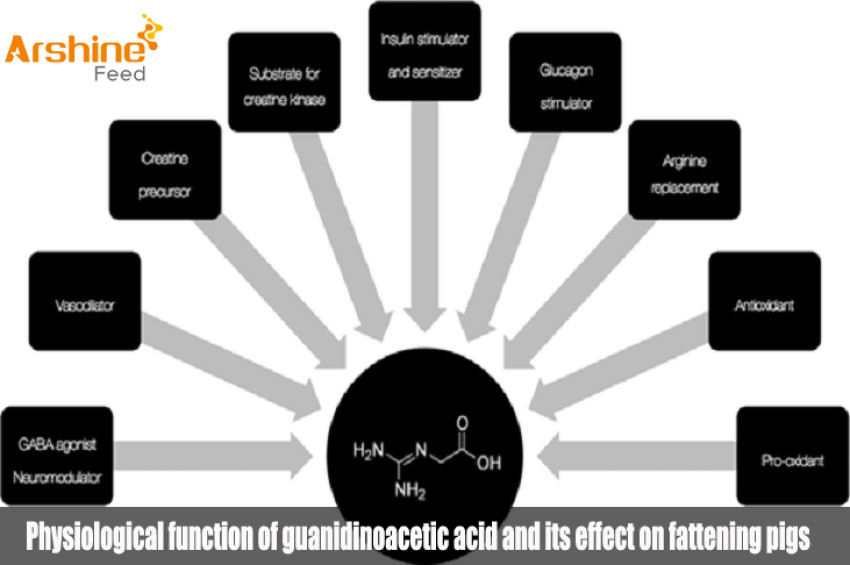
Guanidinoacetic acid is an endogenous substance for the synthesis of creatine in humans and animals. Creatine can be obtained from organisms or synthesized by organisms themselves. Guanidinoacetic acid is a natural precursor of creatine, and creatine can be supplemented by adding guanidinoacetic acid to the feed.
1. Adding 300g-500g of guanidinoacetic acid per ton of fattening pig feed can increase the average daily gain and feed conversion rate of pigs.
2. Guanidinoacetic acid can increase the utilization rate of high-energy substances such as creatine phosphate and adenosine triphosphate in the feed, reduce the decomposition of sugar compounds, fat, and protein for energy, thereby accelerating the growth of animals and improving the utilization rate of feed.
3. Some studies have found that adding 800 grams per ton of guanidinoacetic acid to the feed of fattening pigs can increase the daily gain by 8%, reduce the ratio of feed to meat by 6%, increase the slaughter rate by 3%, and increase the lean meat rate by 8%.
4. Studies have found that guanidinoacetic acid can improve the production performance of fattening pigs and improve the carcass quality of fattening pigs.
5. Adding guanidinoacetic acid to broiler feed can improve the production performance and slaughter performance of broiler chickens, and the suitable addition amount is 600-800 g/ton.
Effects of guanidinoacetic acid on total serum protein in pigs:
Serum total protein content can reflect the protein absorption and metabolism status of the animal body. Serum protein has the functions of maintaining colloid osmotic pressure, immunity, transport, acid-base buffer and tissue repair. The serum total protein content of fattening pigs in the guanidinoacetic acid group was significantly increased, which may be due to the promotion of protein synthesis in pigs by guanidinoacetic acid.
Effects of guanidinoacetic acid on serum urea nitrogen in pigs:
Serum urea nitrogen is an indicator that reflects the direction of protein metabolism, the balance of dietary amino acids and the health status of animals. When the diet and amino acid balance in animals are in good condition, the level of serum urea nitrogen decreases; when the animal is ill or in a sub-healthy state, the level of serum urea nitrogen increases. The serum urea nitrogen level of fattening pigs in the guanidinoacetic acid group tended to decrease.
The activities of alanine aminotransferase and aspartate aminotransferase in serum of fattening pigs in the guanidinoacetic acid group showed a downward trend, which indicated that guanidinoacetic acid had a certain protective effect on the structure and function of liver and heart tissue cells of pigs.
Summary: Adding an appropriate amount of guanidinoacetic acid to the feed of fattening pigs has positive effects on pig growth, feed utilization, nutrient biochemical metabolism, and reducing feed-to-meat ratio.
https://www.arshinefeed.com/Knowledge/physiological-function-of-guanidinoacetic-acid-and-its-effect-on-fattening-pigs




